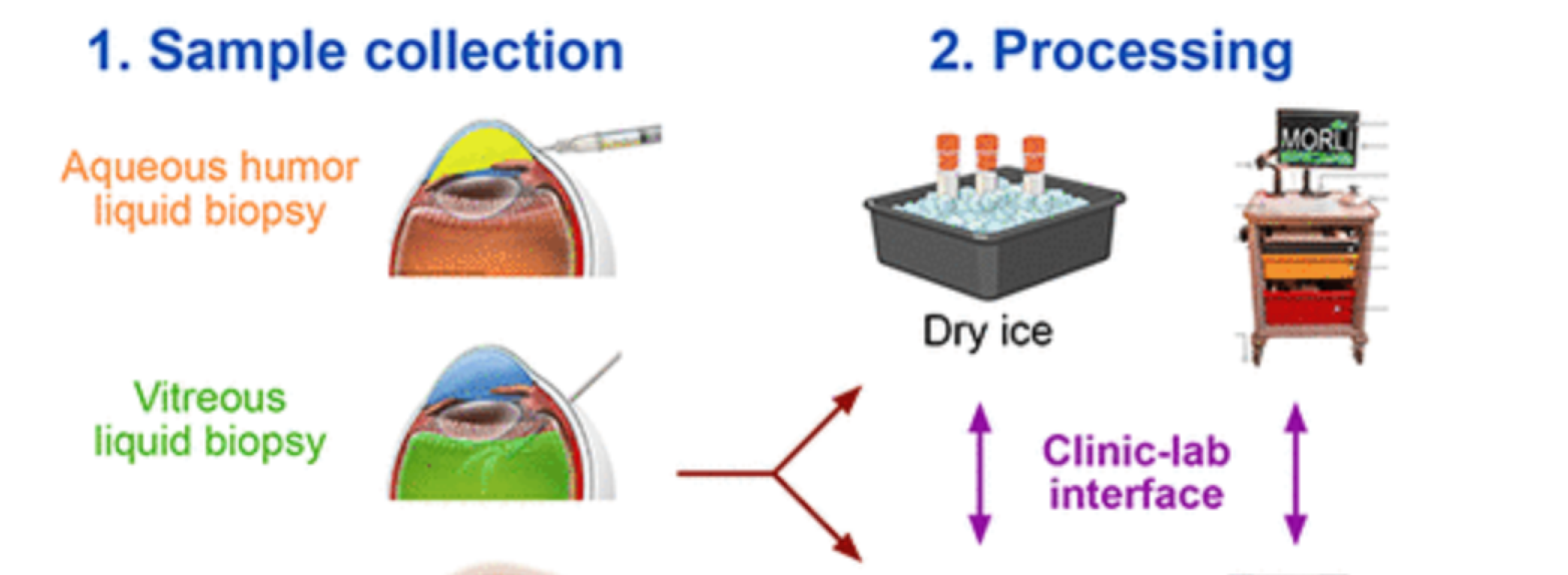Minimally invasive liquid biopsies from the eye capture locally enriched fluids that contain thousands of proteins from highly specialized ocular cell types, presenting a promising alternative to solid tissue biopsies. The advantages of liquid biopsies include sampling the eye without causing irreversible functional damage, potentially better reflecting tissue heterogeneity, collecting samples in an outpatient setting, monitoring therapeutic response with sequential sampling, and even allowing examination of disease mechanisms at the cell level in living humans, an approach that we refer to as TEMPO (Tracing Expression of Multiple Protein Origins). Liquid biopsy proteomics has the potential to transform molecular diagnostics and prognostics and to assess disease mechanisms and personalized therapeutic strategies in individual patients. This review addresses opportunities, challenges, and future directions of high-resolution liquid biopsy proteomics in ophthalmology, with particular emphasis on the large-scale collection of high-quality samples, cutting edge proteomics technology, and artificial intelligence-supported data analysis.
Wolf J, Franco JA, Yip R, et al. "Liquid Biopsy Proteomics in Ophthalmology." J Proteome Res. 2024;23(2):511-522.


